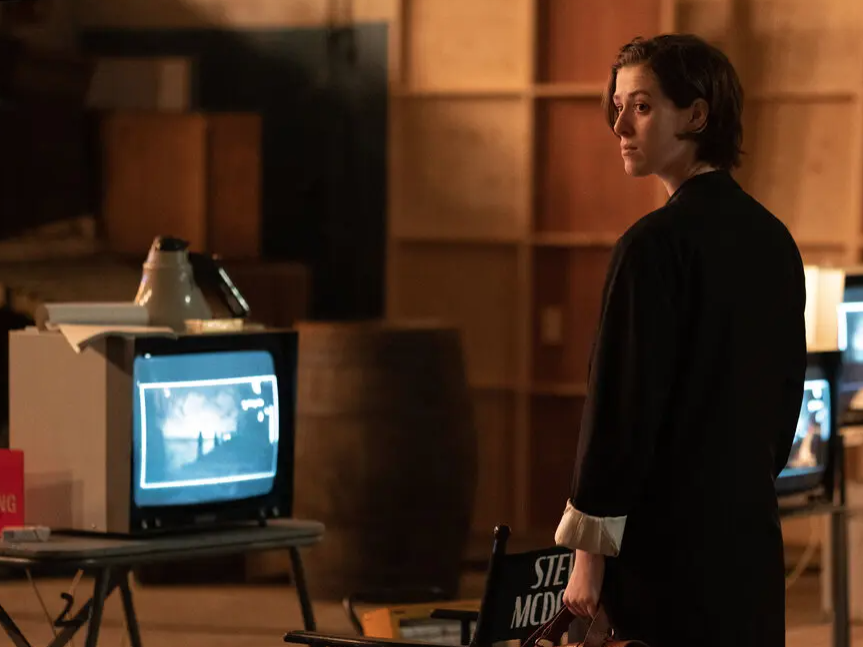
[ad_1]

Honor Swinton Byrne is an up-and-coming filmmaker who’s mourning the loss of her older lover in The Souvenir Part II.
Joss Barratt/A24
hide caption
toggle caption
Joss Barratt/A24

Honor Swinton Byrne is an up-and-coming filmmaker who’s mourning the loss of her older lover in The Souvenir Part II.
Joss Barratt/A24
It’s commonly assumed that film critics hate most sequels, though the truth is we try to keep an open mind. A few months back, I felt it was only fair to point out that the ninth Fast & Furious movie wasn’t nearly as terrible as the eighth Fast & Furious movie. And while I’m mixed on the latest adaptation of Dune, I’m as excited as anyone for Dune: Part Two.
What we don’t see often enough is gifted filmmakers working outside the mainstream and telling intimate stories that span multiple movies. Filmmakers like the brilliant Joanna Hogg, who conceived her semi-autobiographical drama The Souvenir as a two-part work.
I was a big fan of the first Souvenir, which introduced us to Hogg’s younger alter ego, Julie Harte, a London film student played by the splendid newcomer Honor Swinton Byrne. Set in the mid-1980s, it told the piercing story of Julie’s tumultuous romance with Anthony, an older man who seduced her with his rakish charm and ultimately died from a heroin addiction that he tried to hide from her.
As the wonderful The Souvenir Part II opens, the wound of Anthony’s death is still raw. We see Julie grieving at home with her parents, who don’t always know the right words to say, but are a deep source of love and comfort anyway — especially her mother, played once again with wondrous grace by Swinton Byrne’s famous real-life mom, Tilda Swinton.
Much of The Souvenir Part II focuses on Julie’s decision to make a kind of cinematic memorial to Anthony as her thesis film. It’s an emotionally wrenching process, as Julie struggles to figure out her vision and articulate it to her impatient cast and crew.
But as Hogg makes clear, directing a film is hard enough even when you aren’t mining your own personal tragedy for material. She hurls us into the everyday headaches of low-budget filmmaking: the script changes, the continuity errors, the on-set tantrums. I could’ve watched another full hour of these scenes, which make for terrific behind-the-scenes comedy: While The Souvenir Part II is a sadder movie than its predecessor, it’s also, in some ways, a lighter one. The most amusing character is Julie’s arrogant and ambitious classmate Patrick, who’s played by the great performer and filmmaker Richard Ayoade.
You can guess that Julie’s story ends on an optimistic note, since in real life, Hogg went on to direct music videos, TV series and several acclaimed feature films that brought her to this point in her career. But at any given moment, you’re never entirely sure where The Souvenir Part II is headed. That feels fitting: This is a movie about the difficulties of dealing with loss and making art, and how there’s no clear or easy way to go about either one.
Swinton Byrne quietly lays bare the many layers of Julie’s grief and trauma: her loneliness, her longing for intimacy and, finally, her determination to honor her lost love the only way she knows how.
I won’t say too much about how Julie’s film turns out, except to note that Hogg has come up with a pretty wild movie-within-a-movie conceit that pushes this drama to a new level of meta-invention. Hogg also finds a way to honor one of her early mentors, the great British experimental filmmaker Derek Jarman, who, incidentally, also frequently worked with Tilda Swinton.
Maybe this all sounds a little self-involved, but The Souvenir Part II never feels narrow or solipsistic. It’s a wonderfully generous movie, sardonic in tone but rich in understated emotion. Hogg regards her younger self both critically and affectionately, and she shows an instinctive fairness toward all her characters.
She’s also extremely attentive to how they look, talk and present themselves: Rather than overdoing the big ’80s hair and obvious needle drops, aside from one exhilarating use of the Eurythmics, she channels the vibe of the era with exquisite subtlety.
The first Souvenir didn’t draw huge crowds, and the audience for a sequel may prove even smaller. But if you missed the first one, there’s no better time to stream it, in preparation for this marvelous follow-up. Together, they add up to something intensely personal and close to perfect — which is not to say I’d mind if Hogg ever decided to revisit these characters in the future.
[ad_2]
Source link

